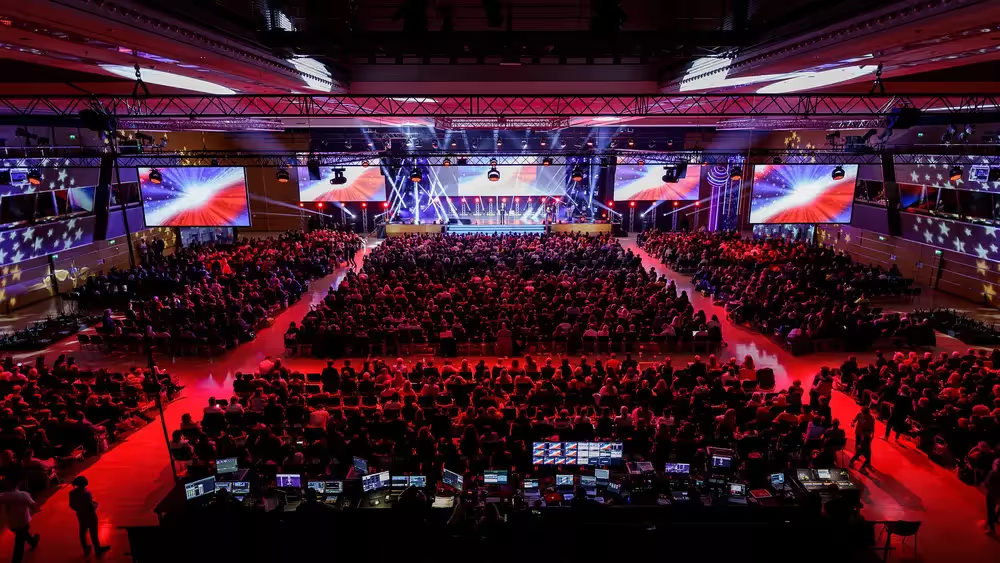1. What is ROI in event marketing?
ROI stands for "Return on Investment" and describes the ratio of profit to the investments made in the event. In event marketing, ROI is a central factor, as it shows how successful the event truly was and what results were achieved. It’s essential to distinguish between direct revenue (such as ticket sales or sponsorship income) and indirect revenue (e.g., brand awareness, new leads, or increased customer loyalty). The latter is often harder to measure but has a long-term impact on an event's success. Ultimately, ROI is always very specific, depending on the goals pursued with an event.
2. Why is ROI crucial for event managers?
- Comparability: Events are a form of marketing and are thus automatically compared with other marketing formats in terms of effectiveness and efficiency. Knowing the ROI helps to compare events with other marketing forms.
- Budget transparency: A clear ROI makes the budget understandable and transparent, both for the internal team and for stakeholders.
- Basis for future event decisions: ROI enables fact-based evaluation and provides valuable insights that assist in planning and executing future events.
- Efficiency increase and budget justification: A positive ROI justifies the investment and strengthens the event team’s position by demonstrating the financial and strategic added value.
3. How is ROI calculated in event management?
The basic formula for ROI is: ROI = (Revenue - Costs) / Costs x 100%
Components of ROI:
- Revenue: This includes income from ticket sales, sponsorships, or new customer contacts generated through the event. Tip for free events: Assign the same value to new contacts generated by the event as the average value used for conventional lead generation within the company. A key aspect of this calculation is determining what an average lead or new customer costs in other marketing channels.
- Costs: This includes all expenses such as event location, catering, technology, staff, marketing, event platform, and other expenditures.
Example
Suppose an event generates revenue of 100,000 CHF, and total costs amount to 50,000 CHF. The ROI would be:
ROI = (100.000 − 50.000) / 50.000 × 100 = 100%
A positive ROI of 100% means the event has generated double the amount invested.
4. Strategies to increase event ROI
- Targeted event planning: Clear objectives and a defined target audience are essential to maximise event success and increase ROI.
- Use of digital event management platforms: Tools like Oniva enable comprehensive event planning, guest management, and communication, improving efficiency and saving resources.
- Personalised event experience: A positive and personalised experience fosters customer loyalty and increases the likelihood of participants returning or recommending the event.
- Partnerships and sponsorship: Sponsors contribute to increasing financial returns and offer additional funding options, positively impacting ROI.
5. How to measure event ROI effectively?
Clear KPIs are essential for accurate ROI measurement. Key KPIs include:
- Number of participants: Provides insight into interest in the event and potential reach
- Engagement rate: Interactions, such as participation in sessions or social media interactions, provide insights into attendee engagement.
- Leads and conversion rate: The number of leads generated and resulting conversions are critical success Factors.
- Feedback and satisfaction surveys: Feedback collected immediately after the event offers valuable insights into satisfaction and areas for improvement.
- Tracking and CRM integration: With digital tools, leads and conversions can be tracked to completion, allowing precise analysis of impact and ROI.
Conclusion
Clear goal setting, precise measurement methods, and strategic optimisations are the keys to a successful ROI in event marketing. By using modern event tools, focusing on the event experience, and involving strong partners, companies can sustainably enhance event success and gain valuable insights for future projects.



















.svg)















































































